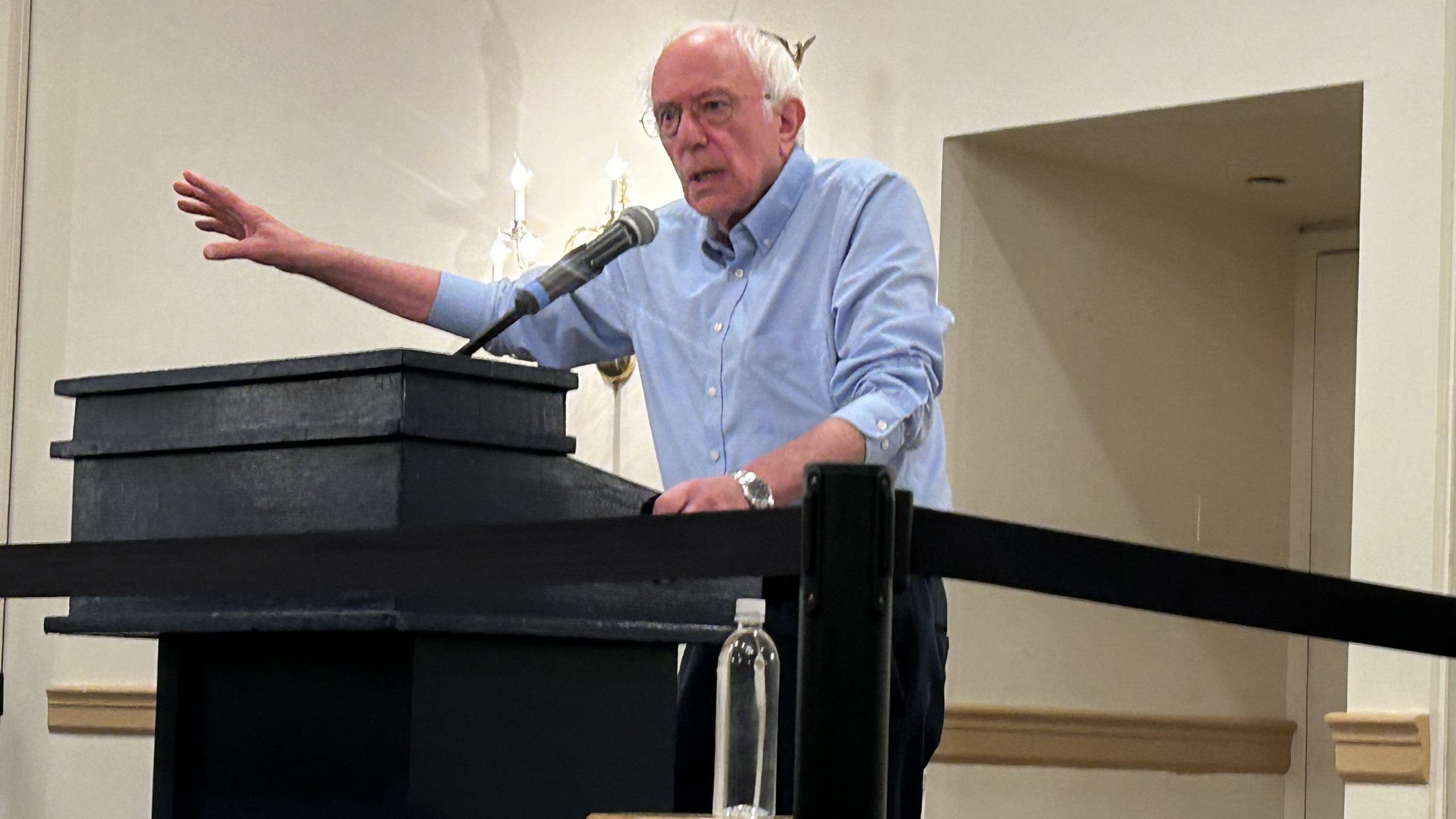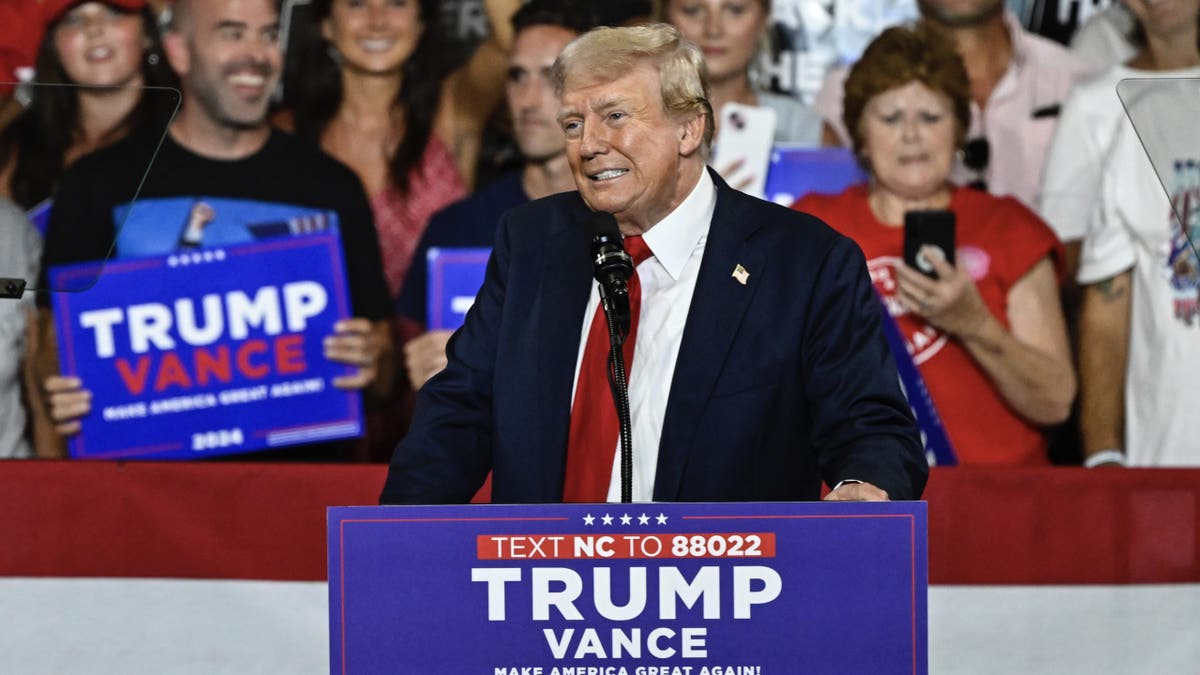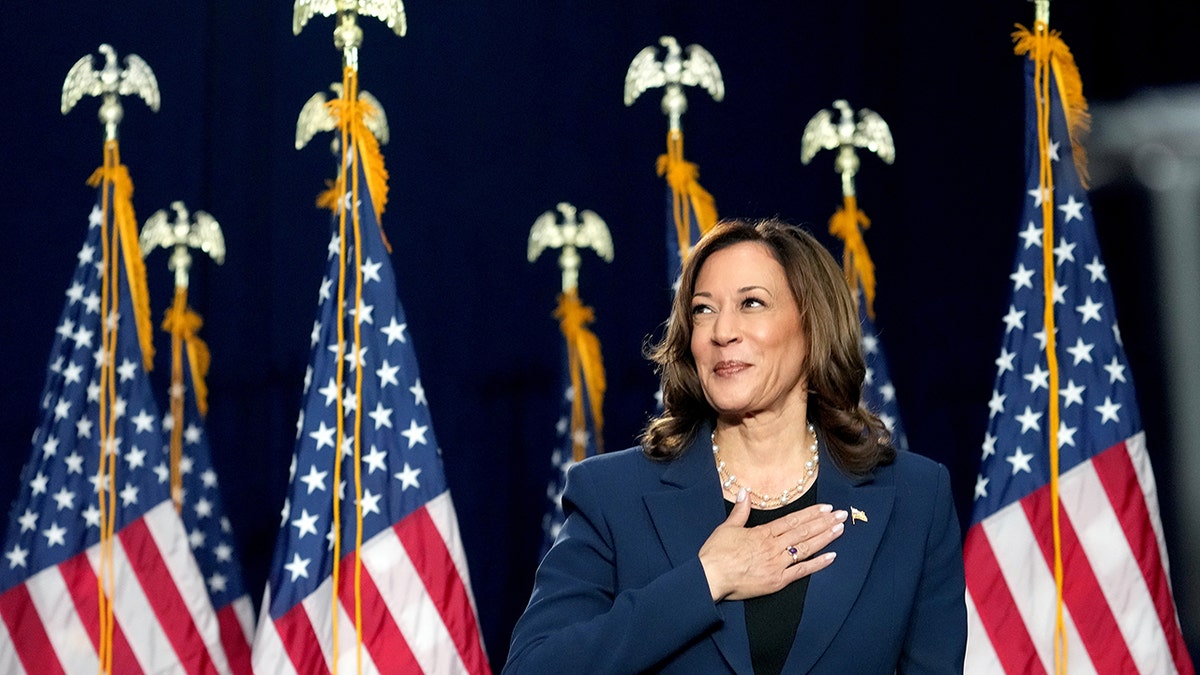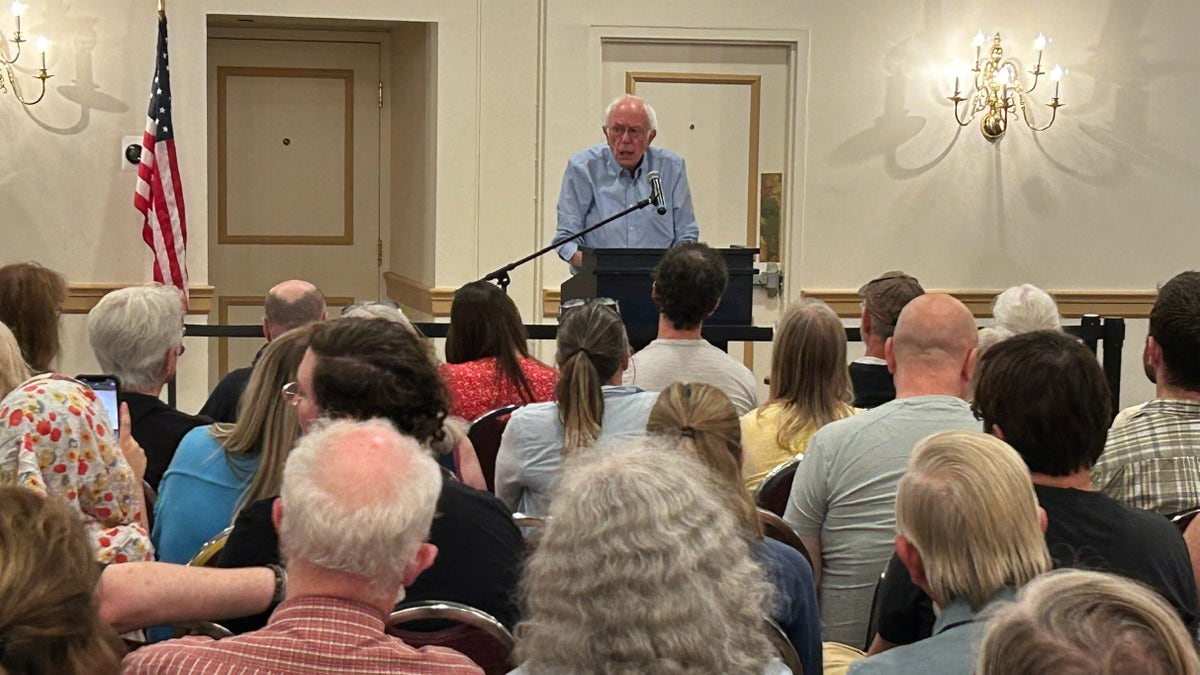Vermont
In Vermont, ‘Town Meeting’ is democracy embodied. What can the rest of the country learn from it? – The Boston Globe

But in pockets of New England, democracy is done a bit differently. People can still participate directly and in person. One day each year, townsfolk gather to hash out local issues. They talk, listen, debate, vote. And in places like Elmore, once itâs all over, they sit down together for a potluck lunch.
Town Meeting is a tradition that, in Vermont, dates back more than 250 years, to before the founding of the republic. But it is under threat. Many people feel they no longer have the time or ability to attend such meetings. Last year, residents of neighboring Morristown voted to switch to a secret ballot system, ending their town meeting tradition.
Not so in Elmore, population 886. Its residents are used to holding tight to traditions. Theyâve fought to keep open their post office, their store and their school, the last one-room schoolhouse in the state. Last fall, Elmore residents voted 2-1 in favor of keeping their town meetings.
And so it is at 9 a.m. on the first Tuesday in March, when, atop an elevated stage, moderator Jon Gailmor stands up.
âGood morning, everyone, and welcome to democracy,â he says. âThis is the real thing, and we should all be proud that weâre doing this.â
Community and government, hand in hand
Elmore calls itself the beauty spot of Vermont. The town borders a lake, which in early March is dotted with people ice fishing. Beyond, a mountain rises. At night, steam floats up from sugarhouses, where maple sap is being boiled down into syrup.
The heartbeat of the town is the store. âIâve always said itâs a live, living, breathing creature. I donât own it; she owns me,â says Kathy Miller, 63, who bought the store with her husband, Warren, in 1983. People would come in not only to buy milk and pick up the mail but to use the fax machine, find a plumber or just to swap gossip.
In 2020, Warren died. He loved collecting things â advertising signs, beer-tap handles, snowboards. At home, Miller looks through some of his collections and talks about selling stuff. Her sense of loss is profound. Her best friend, the man she worked alongside every day, is gone.
The year he died, COVID-19 restrictions also took a toll on the business, and Miller found she was struggling. Then townsfolk began giving her money in advance. âI had one gentleman give me $5,000 just to keep the store going,â Miller says, choking up.
Miller kept running the store for another 18 months before she was bought out by a community trust, set up to ensure the store remains open. These days, the store is run by Jason Clark. Miller helps out when sheâs not serving meals at a food kitchen. And she still collects her bills from P.O. Box 1.
Miller recalls that after joining the state grocersâ association in the 1980s, she testified before Congress about the impact of credit card fees. Back then, she believed that little people could have a voice in national politics. But these days, she says, Washington has gotten away from the basics. Too big, she says. Too messed up. Tilted off its axis.
Her husband served as a Republican representative in the Vermont state legislature, and Miller describes herself as a Republican who hasnât drunk the Kool-Aid. She notes both Vermont and Elmore have shifted more Democratic over the years. But at Town Meeting, she says, political differences donât mean a thing.
âThereâs no animosity,â she says. âPeople can talk about things. You shake hands with your neighbor when you leave.â
At Town Meeting, Miller makes a pitch to increase the townâs library funding from $1,000 per year to $3,000, to reflect the increasing patronage and expenses. The townsfolk agree.
A moderator who keeps things moderate
Gailmor, 75, is a singer-songwriter who brings an element of performance to his role as moderator.
âReappraisals of your homes are going to start in the spring,â he says as he reads through a dry list of announcements. But then, to laughter, he adds: âSo spruce âem up.â
He describes himself as an independent voter who has supported both Republicans and Democrats over the years.
The day before the meeting, Gailmor plays his guitar at the library in Morristown. Heâs helping a group of senior citizens practice the songs they have written for an upcoming performance. They are supposed to ax two of the eight songs but canât bring themselves to choose. Instead, they decide, they will perform them all.
The seniors love Gailmor, who says he has somehow aged to become one of therm. They joke about âflatlandersâ â people not born in Vermont â and have come up with a song that celebrates the spring thaw: âSo break out the booze, weâve got nothinâ to lose, embracing the ooze, itâs the mud season blues.â
Gailmor first moved to Elmore in 1980 and says he found the town meeting tradition nothing short of miraculous. It wasnât some politician spouting off but real people taking part. He was so inspired that he even wrote a song about it. He plays it for the seniors.
âGreet the old town folks, hear the gossip and the jokes, dip a donut in a good strong cup of Joe,â Gailmor sings. âFind your favorite chair, plant your buttocks there â weâre getting down to business, donât you know.â
At town meetings, people sometimes go beyond voting on local issues and decide to take a stand on national issues of the day. At home, Gailmor holds a photograph of his wife, Cathy Murphy, who died two years ago. Captured by an Associated Press photographer, the image shows Murphy at an Elmore Town Meeting in the 1980s, when she was speaking out against nuclear weapons as part of the Nuclear Freeze movement.
âYou feel important,â Gailmor says. âYou feel like you are being listened to.â
This year, Elmore decides to take a stance on another broader issue by adopting a declaration of inclusion. It states the town will welcome all people regardless of race, religion, sexual orientation or gender identity.
A âforced civilityâ that works
âForced civility.” Frank Bryan, a retired University of Vermont professor who wrote a book about town meetings, coined that term to describe the way people dealing with disagreements in person are compelled to recognize each otherâs common humanity in a way that larger-scale political interactions do not allow.
That doesn’t mean it always goes smoothly. In Gailmor’s decade of moderating, he says one incident stands out. He invoked the rules to stop one man from repeatedly talking on a particular issue. The man seethed, then came up to Gailmor after the meeting to say he felt like chopping his head off. He stormed off and later moved away. The animosity with Gailmor was never resolved.
Miller says she learned her own lesson about small-town politics after once putting up a political sign about school choice in her store. She had one customer who wouldnât come back and stopped speaking to her, she says. Even with that, though, she is confident about the gentility of the system in which she participates.
Just having voters show up for hours on a weekday morning is challenging. Morristown is one of many Vermont towns to end the tradition of town meetings. Richard Watts, the director of the Center for Research on Vermont at UVM, says people in larger towns tend to feel less sense of connection.
There’s a key downside when a town moves to secret ballot, also known as an Australian ballot because states there were the first to adopt such a system in the mid-19th century: It’s usually a straight up-or-down vote. That means people can’t make tweaks or debate issues. And for some, the open, collegial debate is the genius of the entire system.
âYouâll always have disagreements, and sometimes, sides,â Miller says. âBut itâs not hate. Thereâs not the rage that Iâm seeing on TV.â
Why people get involved (and stay involved)
At the meeting, people leaf through the town report, which features a photo of Brent Hosking and a note thanking him for his 25 years of service as Elmoreâs volunteer fire chief.
A retired industrial arts teacher, Hosking, 74, first bought an old farmhouse in Elmore in 1979. What’s sprouted on his property since then is testament to his never-ending tinkering. He has built a huge barn, an addition to his home and a sugarhouse to make maple syrup. Antique vehicles are scattered around his farm like animal carcasses, projects for another day.
He’s tapped 400 maple trees â a small operation compared to some of his neighbors â and still uses buckets to carry the sap from some of them to the boiler. He and his wife, Sharon Fortune, sell some of the syrup they make from home and use the rest. Not only on their French toast and pancakes, but also in spaghetti sauce, stews, baking, on top of popcorn and in their morning coffee.
âThe people in town, if they come over to eat, they say âWell, is there maple syrup in this?â” Hosking says, chuckling.
He helped start the fire department in 1983 after locals tired of paying neighboring towns to extinguish fires. They get callouts for car accidents, structure fires, and unprepared hikers who get stranded on Mount Elmore.
Being involved has helped foster a sense of community, Hosking says. He knows others will have his back, like when he was once on vacation and other department volunteers corralled his escaped cattle back onto his farm. Town Meeting helps foster that sense of community, he says. It’s a time to get to know your neighbor, he says, which is important in a small town.
Hosking says he’s a Democrat but supports Vermont’s moderate Republican Governor Phil Scott. Like many of his fellow citizens in town, he doesn’t like the turn that national politics has taken.
“You feel helpless, because all you do is one vote,” Hosking says. âIt seems like it gets lost. And I think a lot of people in the nation feel the same way.”
Democracy accomplished. Letâs eat.
Elmoreâs Town Meeting has been going for nearly four hours. What has unfolded represents a cross-section of democracy, of people choosing for themselves how to live and work and govern.
â First, a big surprise: Nancy Davis throws her hat in the ring for a position on the cemetery commission, going up against incumbent John Fish. Nobody can remember a contested cemetery election. Davis, a relative newcomer to Elmore, wants to get more involved.
From there, democracy plays out. People write their choices on Post-it size pieces of green paper and slot them in an old mailbox. Three vote-counters tally the results: Fish 37, Davis 36 â and one spoiled ballot by somebody who has voted for both candidates.
â An impassioned speech by Julie Bomengen secures an extra $500 for the Lamoille Community Food Share, raising Elmoreâs annual contribution to $750.
â Several people have been criticizing the town’s spending habits. Others argue that replacing equipment like the road maintenance truck will only end up costing more if the can is kicked down the road. âWe have just spent two-and-a-half million on this new garage, and then we go out and put $300,000 into a new truck. I think that’s a little overkill,â Shorty Towne tells the crowd.
â After exhaustive discussions, Elmore’s annual town budget of $1.1 million is passed in a voice vote. There is no dissent.
â A move to change next year’s Town Meeting to a Saturday to encourage better attendance is rejected after a survey on people’s preferences proved inconclusive. Elmore, after all, likes its traditions.
Gailmor, who has been voted in for another year as moderator, commends townsfolk for holding a particularly lively and well-attended meeting. Kipp Bovey, who has been active in the meeting, has made good progress on knitting her sweater. Towne has had his say about the truck. Democracy has unfolded on a small canvas. And the much-discussed American political polarization? It’s nowhere in sight.
It’s time to adjourn.
âLunch is cold,â Gailmor says. âBut it will be in the church.â

Vermont
Bernie Sanders says Trump's 'lying' when he claims Kamala Harris is more liberal than the Vermont senator

EXCLUSIVE: WEST LEBANON, N.H. — When it comes to Sen. Bernie Sanders, former President Trump is no laughing matter.
The longtime independent senator from Vermont, progressive champion and two-time runner-up in the Democratic presidential primaries is on a two-day swing this weekend in neighboring New Hampshire as well as Maine to campaign on behalf of Vice President Kamala Harris to make sure the GOP presidential nominee doesn’t return to the White House.
“Trump cannot get elected. We’ve got to do everything we can to make sure that does not happen,” Sanders told a crowd of supporters during his first stop Friday in New Hampshire, a key swing state in presidential elections.
TRUMP MOVES TO DEFINE HARRIS AS ULTRA-LIBERAL
Sen. Bernie Sanders of Vermont speaks to supporters at a campaign event on behalf of Vice President Kamala Harris in West Lebanon, New Hampshire, on Friday. (Fox News – Paul Steinhauser)
But minutes earlier, Sanders briefly broke out in laughter when asked in a national exclusive interview with Fox News about comments from Trump this week arguing that Harris — who has replaced President Biden at the top of the Democrats’ 2024 national ticket — is more liberal than the Vermont senator.
Trump over the past week has worked to define Harris, a former San Francisco district attorney and California attorney general, as an ultra-liberal, pointing to her record in the U.S. Senate and as vice president.
WHITMER CHARGES VANCE HAS ‘ABSOLUTELY BETRAYED’ HIS WORKING CLASS ROOTS
Speaking to a packed arena in Charlotte, North Carolina, on Wednesday, Trump charged that Harris was the “most incompetent and far-left vice president in American history… She is a radical left lunatic who will destroy our country if she ever gets the chance to get into office.”
And mentioning Sanders, Trump argued that Harris is “more liberal than Bernie Sanders. Can you believe it?”

Former President Trump speaks at a campaign rally in Charlotte, North Carolina, on Wednesday. (AP Photo/Matt Kelley)
Sanders, responding, said, “I would hope that when he said, ‘Can you believe that?,’ people said no.”
“It’’s not true. Once again, Trump is lying,” Sanders emphasized. “Let me just simply say that for better or for worse, Kamala Harris is not more progressive than I am.”
During his Fox News interview and later at his event, Sanders took aim at Trump, who two months ago was convicted of 34 felony counts in the first criminal trial of a former or current president in the nation’s history.
“This is the most important election, I think, in our lifetimes. I will do everything that I can to see that Donald Trump is defeated,” the senator stressed.
REPUBLICANS ARGUE HARRIS REPLACING BIDEN AT TOP OF DEMOCRATS’ TICKET ‘UNDEMOCRATIC’
Sanders argued that “the American people will not and cannot accept a president who is a pathological liar, somebody who believes that women should not be able to control their own bodies, somebody who in the midst of massive heatwaves thinks climate change is a hoax and somebody who actually does not believe in democracy, has not said that he will accept those election results if he loses. So, for all of those reasons, Trump must be defeated.”
Sanders is campaigning on behalf of Harris, but he hasn’t formally endorsed the vice president.

Vice President Kamala Harris arrives for a campaign event in Milwaukee on Tuesday. (Daniel Steinle/Bloomberg via Getty Images)
“I think if the vice president is to win this election, and obviously I want her to win, I think she has to start talking about issues of relevance to the working class of this country, because there are tens of millions of people who are really hurting,” Sanders explained. “They want to know what the next president is going to do for them, and I hope very much that Vice President Harris will make that clear.”
“The path towards victory is to talk about issues that are relevant,” he reiterated.
Asked what Harris specifically needs to detail, Sanders said, “I hope that the vice president will be talking about the need to substantially lower prescription drug costs… the need to have tax reform so the wealthiest in this country start paying their fair share of taxes, so we can greatly expand child care and affordable housing in this country, and I think we’ve got to be very strong on the issue of climate change and make it clear that we’re going to transform our energy system away from fossil fuel if we’re going to save this planet for future generations.”
Sanders said that Harris’ choice of a running mate — which is expected to come in the next two weeks — will be a signal of whether she will project a progressive agenda as she runs for the White House.
“I think it will, and I hope very much she looks at one of the many progressive people who are out there who I think would do a good job as vice president,” the senator said.
Sanders was making his swing through New Hampshire and Maine less than a week after President Biden suspended his 2024 re-election rematch with Trump. Biden made his move amid mounting pressure from within the Democratic Party for him to drop out after a disastrous performance in last month’s first presidential debate with Trump.

Sen. Bernie Sanders of Vermont speaks to supporters at a campaign event on behalf of Vice President Kamala Harris in West Lebanon, New Hampshire on Friday. (Fox News – Paul Steinhauser)
The embattled president’s immediate backing of Harris ignited a surge of endorsements of Harris by Democratic governors, senators, House members and other party leaders. By Monday night, the vice president announced that she had locked up her party’s nomination by landing the backing of a majority of the nearly 4,000 delegates to next month’s Democratic National Convention. On Friday morning, former President Obama and former first lady Michelle Obama were among the final major party leaders to endorse the vice president.
Harris has also hauled in a staggering $129 million in fundraising since Biden’s announcement, her campaign touted on Thursday morning.
CLICK HERE TO GET THE FOX NEWS APP
Republicans charge that the process has been anything but democratic — and they point to Biden’s own words.
Before dropping out, the president had repeatedly cited the 14 million votes he won in this year’s Democratic presidential primaries as a reason he should stay in the 2024 race.
“The voters — and the voters alone — decide the nominee of the Democratic Party,” he emphasized in a letter on July 8. “Not the press, not the pundits, not the big donors, not any selected group of individuals, no matter how well intentioned.”
Trump, at his rally in Charlotte on Wednesday, called the switch at the top of the Democrats’ national ticket “an undemocratic move.”
“These are nasty people, the Democrats,” Trump argued.
And Republican Sen. Tom Cotton of Arkansas claimed in a social media post this week that “Joe Biden succumbed to a coup by Nancy Pelosi, Barack Obama, and Hollywood donors, ignoring millions of Democratic primary votes.”
But Sanders, who argued during his marathon 2016 Democratic presidential primary battle against eventual nominee Hillary Clinton that the party was working against him, doesn’t buy the GOP criticism.
“These are extraordinary times and the Democrats had to move very quickly,” Sanders said. “So I think that given the reality that Biden dropped out and having a Democratic convention coming, I think what happened is she announced her candidacy, she rallied the support she needs, and I think that’s fine.”
Get the latest updates from the 2024 campaign trail, exclusive interviews and more at our Fox News Digital election hub.
Vermont
Wolfsgart car show to kick off in Essex Junction

ESSEX JUNCTION, Vt. (WCAX) – Car enthusiasts will converge in Essex Junction on Friday for the annual Wolfsgart show.
Cars of all makes and models will be parked at the Champlain Valley Expo this weekend.
Gates open for spectators at 9 a.m. on Friday with events scheduled through Sunday.
You can find tickets here.
Copyright 2024 WCAX. All rights reserved.
Vermont
Vermont Primary Election 2024: What to know about early voting

The Aug. 13 statewide major party primary is less than a month away and early voting is already underway.
In this election, Republican, Democratic and Progressive contenders will vie for their party’s nominations in the following races: U.S senator, U.S representative, governor, lieutenant governor, treasurer, secretary of state, auditor of accounts, attorney general, the state Senate (30 seats), state Representative (150 seats) and high bailiff (14 seats).
Primary winners face off against each other and minor party candidates in the Nov. 5 general election.
For Vermonters interested in casting your ballot prior to election day, below is a complete guide to early and absentee voting.
What do I need to know about early and absentee voting?
Any registered voter may request an absentee or early ballot via mail, phone, online or in person. Family members and healthcare providers are also allowed to advocate for a voter to receive an absentee ballot.
Voters can request and track the status of an early voter absentee ballot online by logging into their My Voter Page at https://mvp.vermont.gov/. Ballots can be returned through the mail or in person, unless delivered by justices of the peace on the day of the election, who will bring the ballot back with them.
Absentee or early ballots are available no later than 45 days prior to the primary or general election and 20 days before a municipal election using secret ballots.
For more information about absentee or early voting, visit the Absentee Voting FAQs page or Early & Absentee Voting page. Voters can also contact the Elections Division at sos.elections@vermont.gov or 800-439-VOTE.
You can find your city or town clerk at https://outside.vermont.gov/dept/sos/Elections%20Division/voters/townclerkguide.pdf, from whom you can request a ballot, on the Secretary of State website.
The deadline to request early or absentee ballots is 5 p.m. the day before any election, or whenever your town clerk’s office closes that day.
Megan Stewart is a government accountability reporter for the Burlington Free Press. Contact her at mstewartyounger@gannett.com.
-

 World1 week ago
World1 week agoOne dead after car crashes into restaurant in Paris
-

 Midwest1 week ago
Midwest1 week agoMichigan rep posts video response to Stephen Colbert's joke about his RNC speech: 'Touché'
-

 News1 week ago
News1 week agoVideo: Young Republicans on Why Their Party Isn’t Reaching Gen Z (And What They Can Do About It)
-

 Movie Reviews1 week ago
Movie Reviews1 week agoMovie Review: A new generation drives into the storm in rousing ‘Twisters’
-

 News1 week ago
News1 week agoIn Milwaukee, Black Voters Struggle to Find a Home With Either Party
-

 Politics1 week ago
Politics1 week agoFox News Politics: The Call is Coming from Inside the House
-

 News1 week ago
News1 week agoVideo: J.D. Vance Accepts Vice-Presidential Nomination
-

 World1 week ago
World1 week agoTrump to take RNC stage for first speech since assassination attempt



















